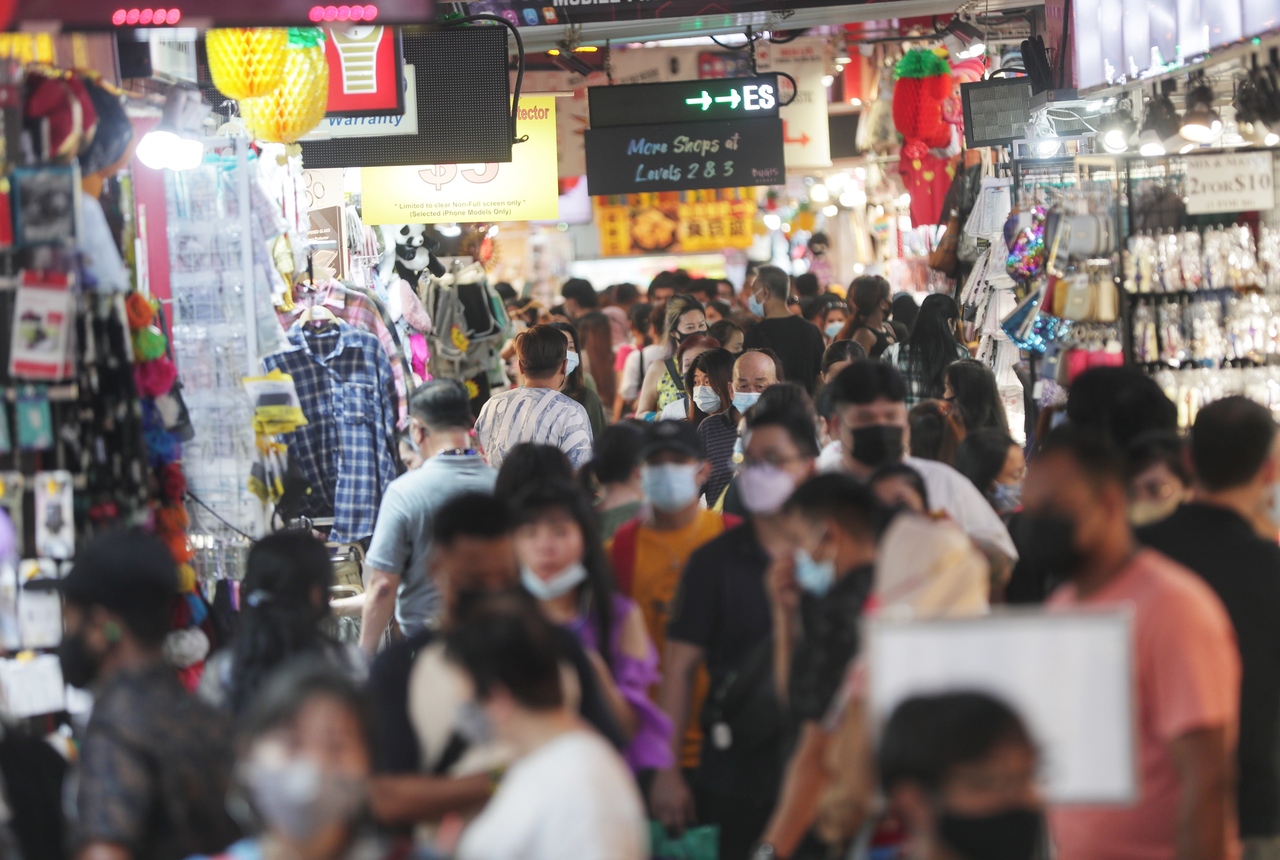Close to six in 10 SMEs in Singapore with enough cash to last them less than six months: Study
Sign up now: Get ST's newsletters delivered to your inbox

This is especially concerning for businesses that are cash and labour intensive like retail and food and beverage sectors.
PHOTO: ST FILE
Follow topic:
SINGAPORE - Close to six in 10, or 58 per cent, of small and medium-sized enterprises (SMEs) in Singapore said their existing cash flow can sustain them for only less than six months, a study published this month has found.
This is the second-highest percentage out of five countries surveyed in Asean.
Vietnam came in first, at 65 per cent, while Indonesia stood at 54 per cent. Malaysia saw 46 per cent of SMEs saying so, and Thailand came in last at 43 per cent.
Overall, 54 per cent of SMEs across the five Asean countries indicated that their existing cash flow can sustain their operations for less than six months, the study showed.
Conducted by UOB, Accenture and Dun & Bradstreet, the study was done in the first quarter of this year and had surveyed 1,500 SMEs across five markets in Asean - Singapore, Indonesia, Malaysia, Thailand and Vietnam - to gauge business sentiment across the region.
Mr Lawrence Loh, UOB's head of group business banking, said SMEs in Singapore face new challenges such as high inflation and rising interest rates, and are concerned about the rising costs of raw materials, rent and utilities.
With rising inflation and the possibility of a recession, having over half of Asean's SMEs indicating that their existing cash flow is sufficient to sustain their operations for only less than six months is indeed worrying, said Mr Chiu Wu Hong, tax partner and head of enterprise at KPMG in Singapore.
This is especially concerning for businesses that are cash and labour intensive, such as those in the retail and food and beverage sectors, he added.
But the amount of cash reserves a business should have is largely dependent on the volatility of the industry it operates in, which stage the business is in, and also its goals and strategies, he said.
For example, businesses in oil and gas should ideally maintain a larger cash reserve to help them tide over major fluctuations, such as the prices of products or commodities they trade in, Mr Chiu added.
Those in relatively stable sectors, such as professional services, can likely forecast its future cash flows more accurately and hence reduce the need for them to hold large amounts of free cash on hand, he said.
Being able to sustain a robust cash flow can be difficult for businesses, especially during the Covid-19 period.
To safeguard his business, Mr Alex Yong, managing director of wine and spirits distributor Malt & Wine Asia, said the company cut its spending on non-essentials, such as investments.
It also ventured into e-commerce, which helped to boost its cash reserves as payment is made immediately upon ordering.
"It was really difficult to forecast sales because of all that uncertainty, so we tried to cut down on spending and tried to keep a larger buffer of cash of at least six months," Mr Yong said.
On balance, only 38 per cent of SMEs in Singapore said cash flow is a key concern, compared with 49 per cent of SMEs in Malaysia and 46 per cent of those in Vietnam.
Despite this, Singapore SMEs were the least optimistic about economic conditions of the five countries, with only about 42 per cent of SMEs feeling optimistic.
A possible reason for this is that businesses in Singapore generally incur higher business operating costs as opposed to its other Asean counterparts due to the country's heavy reliance on imports, said Mr Chiu.
He said: "In addition, many smaller businesses are also coping with the lack of manpower along with the pressures to acquire and retain talent, which continue to drive up the costs of running a business in Singapore.
"Singapore enterprises are certainly feeling the heat from increased cost pressures. And as the economy continues to recover from Covid-19, many businesses could also be less bullish in their outlook as they continue to monitor the local and global business landscape with caution."

